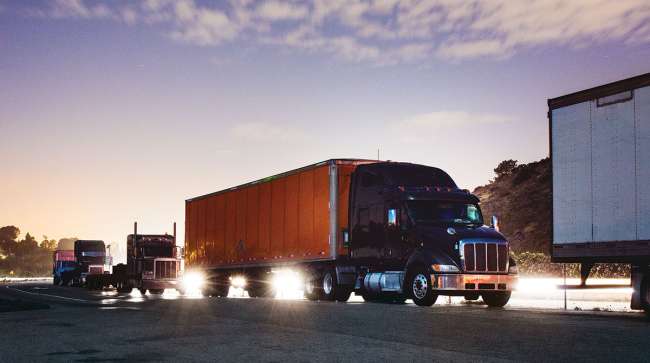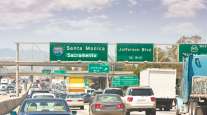Senior Reporter
FHWA Announces Plan for Updated Truck Parking Survey

The Federal Highway Administration has notified state transportation officials and private truck stop operators that it is drawing plans to update the 2014 nationwide “Jason’s Law” survey that assessed the availability of truck driver parking.
The agency already has forwarded its plans for White House approval and intends to begin the survey soon, FHWA spokesman Doug Hecox said. “It has been submitted to the Office of Management and Budget for approval, and we have a contractor onboard to conduct the survey.”
Meanwhile, the agency is seeking additional comments through May 23, according to a Federal Register notice April 23.

The shortage of truck parking has long been a top industry issue, and some officials expect it could even become a bigger challenge with the advent of the electronic logging device mandate that went into effect Dec. 18.
More than 75% of truck drivers and almost 66% of logistics personnel reported regularly experiencing problems with finding safe parking locations, according to the first survey made public in August 2015.
Once again, FHWA intends to survey departments of transportation personnel in every state on the location, number of spaces, availability and demand for truck parking (including at rest facilities and truck parking information systems). The survey will include truck parking plans as well as any impediments to providing adequate truck parking capacity.
FHWA also intends to survey private truck stop operators in each state seeking the same information. Private parking spots for trucks account for about 90% of all available spaces, according to FHWA.
The updated survey also includes plans to collect transportation officials’ records and observations of the location and frequency of trucks parked adjacent to roadways and on exit and entrance ramps to roadway facilities.

Trucks parked at a rest stop along Interstate 5 in California. CalTrans said the state’s truck parking shortage and its impacts “appear to have gotten worse since the first data collection effort.” (Downtown Gal/Wikicommons)
Commenters on the updated survey announcement are asking the agency to improve the survey. FHWA only received 10 comments on its first survey update announcement in December.
Still, several suggested new avenues of inquiry for the survey.
California Department of Transportation officials, for example, said the 2014 assessment “provided a good starting point” for a 2018 follow-up study but that states need additional data collection support and resources.
“Manual methods of data collection, such as visual observations at exit and entrance ramps and truck driver intercept surveys, are too labor intensive and costly to use effectively on California’s large and complex freight transportation system,” Caltrans wrote.
The Ohio-Kentucky-Indiana Regional Council of Governments asked FHWA to collect and record the number of accidents occurring as a result of trucks parking in the public right of way at rest areas, weigh stations and interstate entrance and exit ramps.
Caltrans said that based on input from truckers, the state’s truck parking shortage and its impacts “appear to have gotten worse since the first data collection effort.”
In written comments, Werner Enterprises Inc. noted that participation from all geographic regions in the survey is of “major concern.”
“The first survey lacked equal participation from all stakeholders, which is essential in identifying potential solutions and provide adequate parking,” Werner wrote. “FHWA needs to consider creative and innovative approaches for identifying the truck parking needs of the industry, based on real-world data such as truck GPS data, testimonies, interviews of trucking companies and personal surveys completed by professional truck drivers.”
Natso, a trade organization representing some 1,500 travel plaza and truck stops, wants the updated survey to ask commercial vehicle drivers if they are reimbursed for money they spend on parking, if dispatchers assist drivers with finding safe, legal parking, and for the agency to develop questions for shippers and receivers since their business practices can have a large impact on truck parking capacity.
“I think our members want to expand truck parking if they think there’s a demand and they can get a return on their investment,” Natso President Lisa Mullings told Transport Topics. “We’re hoping that something comes out of this, because we’ve been talking about truck parking problems for many, many years. It doesn’t seem like the needle has moved very much.”




